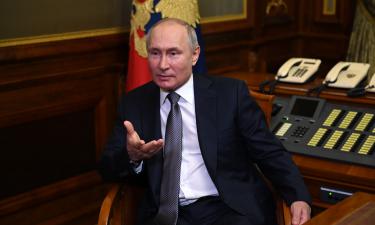Russia passes 3-year budget
Russia will increase spending by nearly 25 percent by 2010, including big raises in defense and a social service spending, according to a three-year government-backed budget passed by lower house of parliament on Friday. It also forecasts slight drop in oil prices.
The State Duma voted 313-120 to pass the plan, Russia's first multiyear economic program since the Soviet-era five-year plans.
The document envisages revenues dropping slightly in 2008 from 2007 levels to 6.64 trillion rubles (US$256.3 billion; EUR190.6 billion) while spending will rise to 6.57 trillion rubles (US$253.6 billion; EUR188.6 billion) - up 20 percent from this year.
By 2010, the plan calls for a balanced budget of 8.09 trillion rubles (US$312.3 billion; EUR232.2 billion).
Defense and security spending will rise by 25 percent by 2010 - from 1.03 trillion rubles (US$39.8 billion; EUR29.6 billion) to 1.29 trillion rubles (US$49.8 billion; EUR37 billion) in 2010.
Under President Vladimir Putin, the armed forces has seen a marked rise in funding for major weapons purchases, salaries and other items, and the Kremlin has started pumping money into key military-industrial sectors that have suffered since the Soviet collapse, as well as law enforcement and security agencies.
Anton Struchinevsky, a senior economist at Troika Dialog bank, said the rise in spending has a populist tinge to it, particularly with parliamentary and presidential elections coming up in December and March.
"It is a part of the political games, inevitably the budget policy has become more populist," he said.
The budget also forecasts a drop in prices for Russia's Urals blend oil this year to US$53 a barrel (EUR39.4) in 2008 and US$50 (EUR37.2) in 2010.
Russia's booming economy has been fueled largely by high world oil prices - a fact that has stuffed the government's coffers but also forced it to direct some funds to an economic stabilization fund, to prevent inflation getting out of hand.
In future years, the Stabilization Fund will be split into multiple budgets for spending on government priorities.
The plan also forecasts inflation staying at 7 percent in 2008, then dropping to 6 percent by 2010 and that oil revenues will decrease as a percentage of gross domestic product from 8.2 percent in 2007 to 5.3 percent by 2010.
Subscribe to Pravda.Ru Telegram channel, Facebook, RSS!




